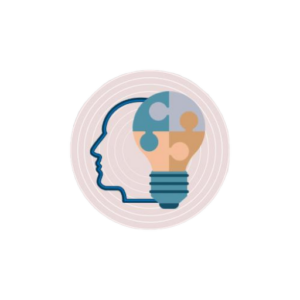INTJs are often admired and shrouded in mystery. At their best, they’re logical, analytical, and super reasonable. A depressed INTJ is not the same. It changes the dynamics of the INTJ in so many ways.
If you have faced depression as an INTJ, it’s probably been very challenging for you. We hope you have gotten the necessary help to cope with the situation.
If you feel depressed but haven’t gotten a diagnosis yet, this article can help you put things into perspective. It’ll also give you a pathway to recovery.
Who is the Depressed INTJ?
A depressed INTJ is an INTJ who’s experiencing clinical depression. This refers to a serious mood disorder marked by persistent sadness. A depressed INTJ will not just be pessimistic for short periods. They’ll feel intense, long-lasting sadness that can last for weeks to months.
A depressed INTJ will often show regular symptoms relating to depression. However, because they are INTJs, some signs might be peculiar or intensified.
Like the INFP, spotting depression in an INTJ can be difficult. It’s even more challenging because INTJs are thinkers. Their introverted nature and death stare also mean people might think they have no problems.
Most INTJs also value self-sufficiency. So, the thought of relying on anyone for help just irritates them. To help a depressed INTJ requires tact and a lot of understanding.
Depressed INTJ vs Unhealthy INTJ
First, it’s important to know the differences between a depressed INTJ and an unhealthy INTJ. An unhealthy INTJ is a stressed INTJ. When INTJs are depressed, they might become more extreme versions of themselves. Stress can be caused by burnout, traumas, and grief.
Sometimes, the signs of an unhealthy INTJ can overlap with that of a depressed INTJ. However, a depressed INTJ is more than just being stressed. Sometimes, a depressed INTJ might not be stressed at all. However, it is marked by persistent sadness that might not have any cause.
If you are feeling depressed, seek medical assistance immediately.
How Does a Depressed INTJ Act?
1. Loses Sense of Purpose
A depressed INTJ loses their sense of direction. They simply no longer think life is worth it. “Why have a cup of coffee with friends if we’ll die anyway”? Thus, they become almost hedonistic.
This can make them more withdrawn and less likely to have any form of conversation. Ironically, they might be more open to small talk when depressed.
2. Extreme Overthinking
An INTJ spends most of their time thinking. However, it’s more focused on problem-solving. A depressed INTJ overthinks even the smallest details.
This can make them more panicky or anxious. It can also make them more pessimistic. By overthinking, their depression will only get worse. It keeps them paralyzed and unable to take action. The problem is they usually can’t help it.
3. A Clear Loss of Self-Control and Discipline
INTJs are some of the most reliable and self-disciplined people. Depressed INTJs are different. They become disorganized and more interested in instant gratification.
Thus, depressed INTJs might overeat or refuse to get out of bed. This also extends to their hygiene levels, as we shall soon see.
4. Cold/Ruthlessness
A depressed INTJ becomes more ruthless or cold. Their emotions are all over the place. Sometimes, their emotions are present, and they might be weeping. Other times, they’ll be numb and insensitive.
A depressed INTJ can be a challenging experience for their loved ones. This is especially true if they’re not aware of their depression.
5. Romanticizing Death
Depressed INTJs, just like INFPs, might be open to dying. They might talk about how dying will feel good or surreal.
Now, no matter what you think, these thoughts are not normal. It’s important to seek medical help if you feel this way.
6. Feelings of Helplessness and Inadequacy
Like most people who experience depression, a depressed INTJ will struggle with feelings of helplessness. As their depression develops, they’ll lose interest in their work or passion.
This might lead to feelings of worthlessness when they notice their declining performances. In worst-case scenarios, things can get really bad.
7. Hygiene Suffers
As mentioned earlier, there’s a loss of self-control and discipline. This shows in their hygiene. It takes a nosedive. For example, depressed INTJs might forget to brush their teeth or take a shower.
Sometimes, they might not forget but might simply lack energy or motivation. With time, their ill-discipline seeps into their careers and personal relationships.
8. Sadistic Sarcasm
INTJs love sarcasm. They also don’t hesitate to use it in their daily lives. A depressed INTJ will be much more sarcastic. Their sarcasm will be rude or even cynical.
They might also make sarcastic remarks about unwarranted events. For example, they might openly mock someone who is struggling with a disability.
What Causes Depression for INTJs?
1. Failure
Failure to hit some of the goals or achievements can take a toll on the INTJ. This is especially true of the INTJ 3w2, INTJ 3w4, INTJ 9w1, and INTJ 9w8.
Their failure can hit them quite hard and open the door to depression.
2. Constant Disappointment
This follows the last point on failure. When they fail, it leads to disappointment. Sometimes, depression isn’t caused by one failure. Its a combination of failures. This can make them feel useless and lead to hedonistic views.
That’s a solid foundation for depression.
3. Traumatic Experiences
A host of traumatic experiences can make an INTJ depressed. For example, childhood traumas and losing a parent or a loved one can increase the chances of depression.
4. INTJ Dark Side
A stressed INTJ has a higher chance of becoming depressed. This is primarily because the traits of a stressed INTJ often overlap with a depressed INTJ.
Thus, a stressed INTJ can easily slide into depression. This is also why it’s important to know the distinction between both conditions.
You can click this link to learn more about the common causes of depression.
INTJ-T and INTJ-A: Slight Differences in Depression
You might also see slight differences between the INTJ-A and INTJ-T in depression. Here are some of these differences.
| INTJ-T | INTJ-A |
| More Pessimistic | More Ruthless |
| More likely to doubt their abilities | More Likely to Become Insensitive |
| More Likely to overthink | More Likely to lose their Discipline |
You can click this link to learn more about the INTJ-A and INTJ-T.
How to Recover From Depression as an INTJ
1. Medical Assistance
The first and most important step is to see a doctor. They are the most qualified to offer a diagnosis and a treatment plan.
Sometimes, you might not even be depressed. Thus, seeking help will put things into perspective.
2. Self-Care
Taking time out to take care of yourself can be vital during this period. INTJs might enjoy activities such as working out, listening to music, or meditating.
The key is to keep yourself busy with the things you enjoy. However, this might be challenging as you’ll be low on motivation.
3. Getting Help From a Therapist
A first step before seeking medical assistance might be to see a therapist. Treatments like Cognitive Behavioral Therapy can do wonders.
Other forms of therapies are available. If you want to explore this option, find a therapist you feel comfortable with.
That makes the entire process easier.
4. Self-Development
During this time, you can also focus on self-development. One way is reading more about your personality type or traits. This website is a good place to start.
Knowing more about your weaknesses might allow you to handle failure or trauma better.
5. Addressing Issues Immediately
You can also help yourself by confronting issues immediately after they pop up. This might be harder for INTJ 6w5, INTJ 6w7, INTJ 9w1, and INTJ 9w8.
However, addressing the issues immediately reduces anxiety and stops depression from seeping in.
6. Learning to Be Vulnerable
Finally, we know you like to be self-sufficient. However, being vulnerable with people you trust is super helpful. This doesn’t come naturally for some INTJs, such as the INTJ 8w7, INTJ 8w9, INTJ 6w5, and INTJ type 5.
However, making a conscious effort to be more open can be a game changer.
How to Help an INTJ Recover From Depression
1. Be Non-Judgemental
It’s important to ensure you’re non-judgemental. It takes INTJs a lot to open up. They don’t need your constructive criticism at this point. They also don’t want you kissing up to them. You should be optimistic but your usual self.
INTJs can see through lies. Once they sense it, communication time is over.
2. Be Firm, But Flexible
If the situation is critical, it’s time to be firm and insist they seek help. While this is important, the type of help they seek can vary. So, be flexible about this.
Being firm with them shows loyalty and can save your INTJ friend or loved one.
3. Give Them Space
While you should listen, please don’t nag your INTJ. You’ll go nowhere. They’ll stop sharing and even cut you off. Remember, they are not their normal selves when depressed.
So, give them space to be themselves. However, if the situation is dire (suicidal), you should probably stick closer.
4. Loyalty, No Matter What
Loyalty means sticking with them no matter what. So, this is not the time to tell others about your INTJ’s problem. Maintain their privacy no matter what and seek their interests.
They’ll notice this, and you might just aid their recovery.
































